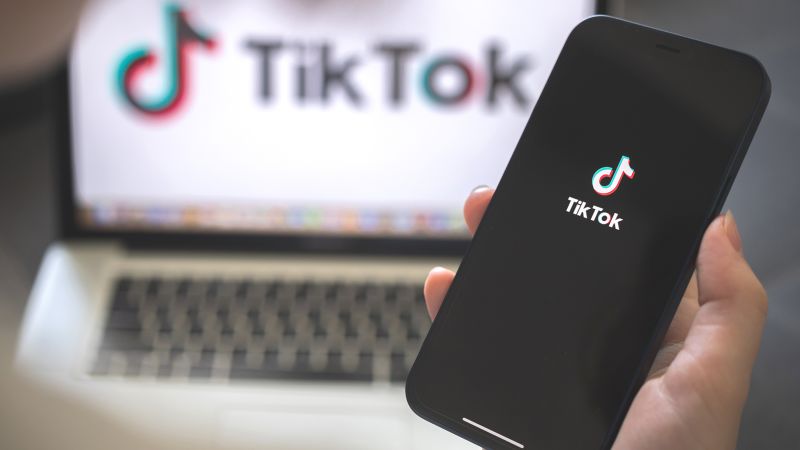

CNN
—
The Biden administration has threatened to ban TikTok from the United States unless the app’s Chinese owners agree to spin off their share of the social media platform, TikTok acknowledged Wednesday evening.
The apparent ultimatum by a US multiagency panel known as the Committee on Foreign Investment in the United States (CFIUS) marks a possible turning point in the long-running negotiations between federal officials concerned about TikTok’s links to China and a wildly popular social media company with more than 100 million US users.
The recent divestiture request was first reported Wednesday by the Wall Street Journal; TikTok later confirmed to CNN that CFIUS had contacted the company, adding that it did not dispute the Journal’s report. But TikTok declined to discuss specifics of the US government’s request, including details around its timing.
“If protecting national security is the objective, divestment doesn’t solve the problem,” TikTok spokesperson Maureen Shanahan said in a statement. “A change in ownership would not impose any new restrictions on data flows or access. The best way to address concerns about national security is with the transparent, US-based protection of US user data and systems, with robust third-party monitoring, vetting, and verification, which we are already implementing.”
TikTok has been negotiating with CFIUS — a group composed of the Departments of Treasury, Justice, Homeland Security, Defense and Commerce, among others — for more than two years on a deal that might allow the app to continue operating in the US market in the face of security and privacy concerns. US officials have raised fears that the Chinese government could use its national security laws to pressure TikTok or its Chinese parent ByteDance into handing over the personal information of TikTok’s US users, which might then benefit Chinese intelligence activities or influence campaigns.
The Treasury Department, which chairs CFIUS, declined to comment.
The talks with TikTok have stretched on without resolution, prompting criticism of the Biden administration by some US lawmakers who have pushed to ban the app through legislation.
Late last year, Congress passed, and President Joe Biden signed, legislation blocking TikTok from US government devices, following in the footsteps of numerous state governments. Since then, the European Union and Canada have also followed suit, reflecting growing suspicion among western governments to TikTok. But so far, there has been no evidence that the Chinese government has actually accessed TikTok user data, and no government has enacted a broader ban targeting TikTok on personal devices.
TikTok has sought to address policymakers’ concerns with voluntary technical and bureaucratic safeguards that it says will help ensure US user data may only be accessed by US employees. Part of that initiative, which the company calls Project Texas, involves storing personal data with the US cloud giant Oracle. TikTok launched a similar push in Europe this month that it calls Project Clover.
That has not stopped TikTok’s US critics. Some US lawmakers have moved to expand Biden’s authority to impose a nationwide TikTok ban on top of the restrictions targeting US government devices, and independent of the CFIUS process — a proposal the White House quickly welcomed. The heat will likely intensify next week as TikTok CEO Shou Chew is expected to face a grilling before the House Energy and Commerce Committee.
Wednesday’s development suggests a shift has occurred in the typically opaque CFIUS talks, though the exact nature of the movement remains unclear, according to Harry Broadman, a former CFIUS official.
“It could be that the divestiture demand is the end of the discussion, but it’s also equally likely that the divestiture is a component of what CFIUS wants in terms of safeguarding national security,” Broadman said. “Unless I’m in the room at CFIUS, it’s really hard to know where the discussions are, and frankly, what’s discussed in public does not often coincide with what’s going on around the table.”
